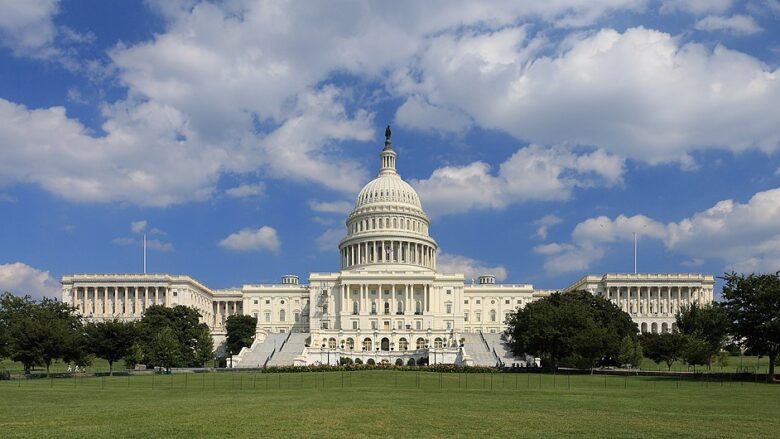Some Massachusetts Congressional Candidates Already Gearing Up For 2022
By Tom Joyce | January 14, 2021, 17:17 EST

Is it 2022 yet?
No. Not even close.
Massachusetts held an array of elections this past November for president, U.S. Congress, the state legislature, county government, and other offices. Even though Congress just recently started its new session earlier this month, plenty of people from Massachusetts have already filed with the Federal Elections Commission to run in 2022, and beyond.
This includes all nine of the U.S. House of Representatives from Massachusetts, a couple of familiar faces, and some new ones as well.
On the Republican side, two of the candidates should be familiar from 2020: Julie Hall of Attleboro in the Fourth Congressional District and Rayla Campbell of Randolph in the Seventh Congressional District.
Hall, a former Attleboro city councilor and U.S. Air Force veteran, secured the 2020 Republican nomination in a September primary against David Rosa, and had the best performance of any Republican candidate running for Congress in the general election. She received 38.9 percent of the vote, but fell to Newton city councilor and U.S. Marine veteran Jake Auchincloss, who received 60.8 percent of the vote, according to the Secretary of the Commonwealth’s office. Hall previously ran for state representative in the Second Bristol District in 2018 and lost a March special election to current state Representative James Hawkins (D-Attleboro), 51.9 percent to 47.9 percent. Hawkins also went on to win the November general election that November 58.3 percent to 41.6 percent.
Additionally, Campbell will run again for Congress, as she told New Boston Post last month. The pro-Trump Republican ran as a write-in candidate in the general election after receiving 1,202 write-in votes to try to make it onto the general election ballot, which the state deemed short of the 2,000 votes required. That was the case despite the state lowering the signature threshold for U.S. House candidates to make the September ballot to 1,000 due to the coronavirus pandemic.
Campbell, who ran against U.S. Representative Ayanna Pressley (D-Dorchester), officially received 695 write-in votes in the general election, according to the Secretary of the Commonwealth’s office.
There are three newcomers to U.S. House races as well.
U.S. Representative Stephen Lynch (D-South Boston) may end up with a primary challenger for the third straight election. That’s because Democrat Michael Ruiz of Dorchester wants to run against him. His campaign web site identifies him as a progressive who supports universal health care, labor unions, a federal jobs guarantee, free public college, a $15 federal minimum wage, and increased investment in public transportation. However, the site does not address how to fund such programs.
Lynch won each of his last two primary challenges without trouble. Last year, he defeated Robbie Goldstein 66.4 percent to 33.5 percent. And in 2018, he got 70.9 percent of the vote, as challengers Brianna Wu got 22.9 percent and Christopher Voehl got 6.0 percent.
In the Ninth Congressional District, a Republican named Mark Littles plans to run against U.S. Representative Bill Keating (D-Bourne). The Marshfield resident has never run for statewide office, according to the Secretary of the Commonwealth’s office. He has no campaign web site or social media accounts, so it’s unclear where he stands on the issues. However, Littles donated $1,000 to his campaign back in December, according to Federal Election Commission records. Littles serves as the general manager for New England at the wine and liquor company Brown-Forman, according to his Linkedin page. The company manufactures many brands of alcohol, including Jack Daniel’s.
Another U.S. House challenger candidate to file is Lou Marino of Athol, a Republican who wants to run in the First Congressional District against U.S. Representative Richard Neal (D-Springfield), the chairman of the House Ways and Means Committee, where all federal spending bills go.
In 2020 Marino ran a write-in campaign to try to get the Republican nomination for state representative in the Second Franklin District and received 25 votes, 125 short of the 150 necessary to make it onto the November ballot. He also considered running for the U.S. House of Representatives in the state’s Third Congressional District in 2018, but dropped out before the filing deadline, according to Ballotpedia.
Looking past 2022, there are two people who have filed with the Federal Election Commission to run for U.S. Senate in Massachusetts in 2024: incumbent U.S. Senator Elizabeth Warren (D-Cambridge); and frequent candidate Shiva Ayyadurai (R-Cambridge).
Warren had little trouble winning re-election in 2018, receiving 60.3 percent of the vote. Former state Representative Geoff Diehl (R-Whitman) was the runner up in the race with 36.2 percent of the vote. Ayyadurai ran as an independent after deciding against seeking the Republican nomination. He received 3.4 percent of the vote.
Additionally, Ayyadurai tried and failed to secure the Republican nomination for U.S. Senate in 2020, running against Dover attorney Kevin O’Connor. O’Connor received 59.7 percent of the vote in the primary while Ayyadurai got 39.4 percent. In the immediate aftermath of the primary loss, Ayyadurai said that the primary was rigged against him. Ayyadurai then ran as a write-in in the general election and got 21,134 votes (0.6 percent). U.S. Senator Ed Markey (D-Malden) won the election, receiving 66.2 percent of the vote to O’Connor’s 33 percent.
Democrats have won every U.S. House race in Massachusetts since 1994. Republicans won one U.S. Senate race, a special election where Scott Brown topped Democrat Martha Coakley in 2010, but then Brown lost his re-election bid in 2012 to Warren.











